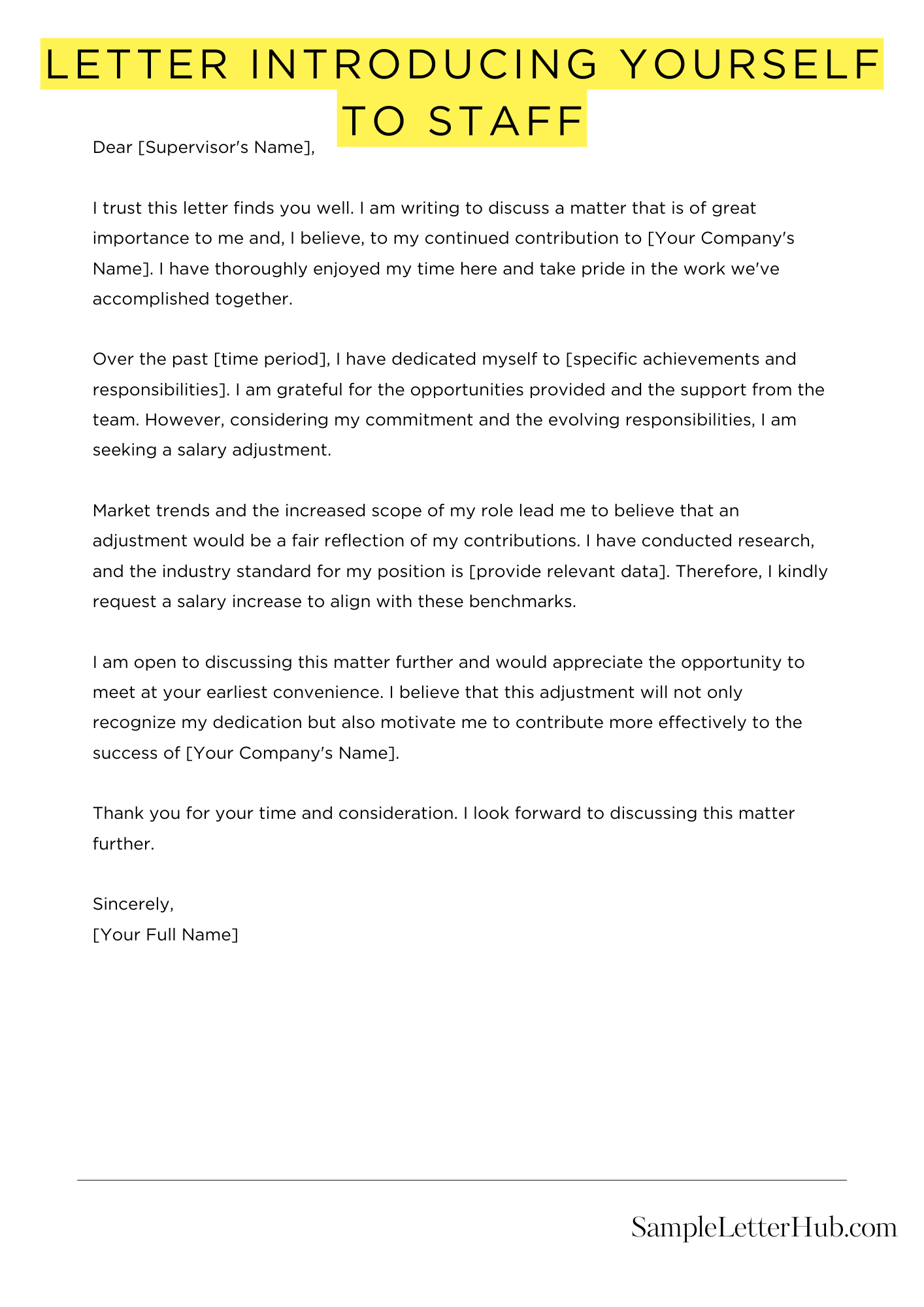When you start a new job, one of the first things you’ll need to do is introduce yourself to your new staff. A well-written letter of introduction can help you make a good impression and set the tone for your working relationship.
In this blog post, we’ll share some templates, examples, and samples of letters introducing yourself to staff. These letters can be customized to fit your specific needs, and they’ll help you write a letter that is both professional and informative.
Whether you’re a new manager, a new employee, or a new volunteer, a well-written letter of introduction can help you get started on the right foot.
Introducing [Your Name] to Staff
Dear Team,
I am thrilled to join the [Company Name] family as your newest [Your Title]. I am excited to collaborate with such a dedicated and passionate team.
With over [Number] years of experience in [Your Field], I am excited to bring my skills and knowledge to the table. I am particularly adept at [List of skills]. I am also a strong believer in [List of values].
I am committed to working closely with each of you to identify and achieve our shared goals. I am open to suggestions and feedback, and I value the perspectives of all team members.
I am excited to learn from you and grow with you. Together, let’s strive for excellence and make a positive impact on our organization.
Please feel free to reach out to me if you have any questions or would like to schedule a meeting. I am available at [Your Email Address] or [Your Contact Number].
Thank you for your time and consideration. I look forward to a successful and rewarding journey together.
Best regards,
[Your Name]

How to Write Letter Introducing Yourself To Staff
Beginning a new job can be daunting, but it’s important to make a good first impression on your new colleagues. One way to do this is to write a letter introducing yourself to the staff.
1. Start with a Formal Salutation
Begin your letter with a formal salutation, such as “Dear Staff” or “To Whom It May Concern.” If you know the names of any specific staff members, you can address them directly.
2. State Your Name and Position
In the first paragraph, clearly state your name and the position you will be holding. You can also briefly mention your previous experience or qualifications.
3. Express Your Enthusiasm
Let the staff know that you are excited to join the team. Express your enthusiasm for the role and the company as a whole.
4. Highlight Your Skills and Experience
In the second paragraph, highlight your skills and experience that are relevant to the position. Be specific and provide examples whenever possible.
5. Offer to Assist
Let the staff know that you are eager to assist in any way possible. Offer to help with specific projects or tasks, or simply express your willingness to lend a hand.
6. Request a Meeting
If you would like to meet with the staff in person, request a meeting in the third paragraph. Suggest a time and place that is convenient for everyone.
7. Close with a Professional Salutation
End your letter with a professional salutation, such as “Sincerely” or “Best regards.” Include your name and contact information below your signature.
FAQs about Letter Introducing Yourself To Staff
What should I include in my letter?
Your letter should include your name, position, and contact information. You should also briefly introduce yourself and explain why you are writing. If you are new to the company, you may want to include some information about your background and experience.
How long should my letter be?
Your letter should be brief and to the point. Aim for no more than one page. If you have a lot of information to share, you can include a resume or CV.
What tone should I use?
Your letter should be professional and respectful. You should also be friendly and approachable. Avoid using jargon or technical language that your staff may not understand.
When should I send my letter?
It is best to send your letter as soon as possible after you start your new position. This will help you to introduce yourself to your staff and get to know them better.
Do I need to send a letter to everyone on my staff?
It is not necessary to send a letter to every single member of your staff. However, it is a good idea to send a letter to your direct reports and any other staff members who you will be working closely with.

